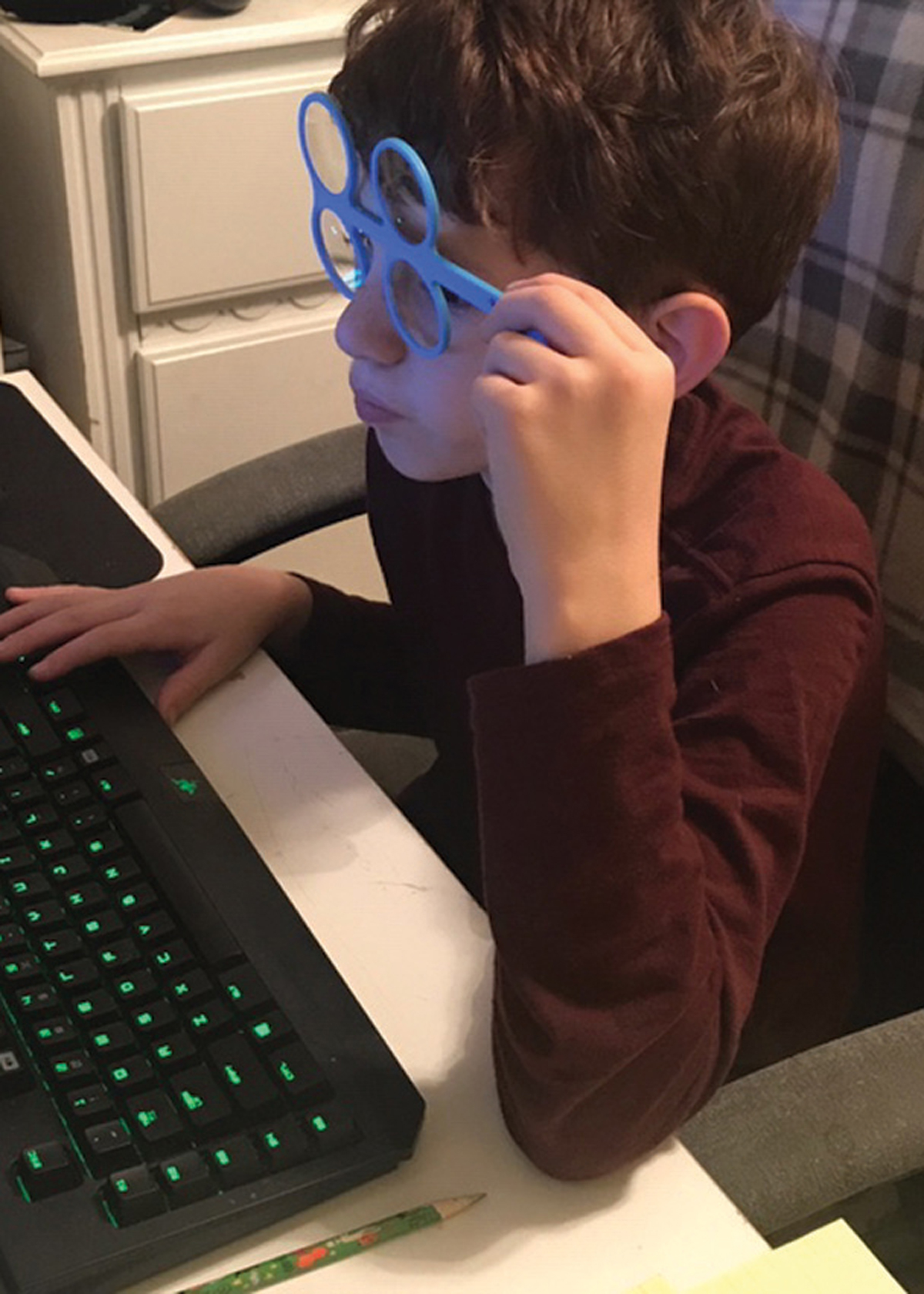 |
|
Augmented reality-based games can improve children’s visual function in amblyopia. Photo: Marie Bodack, OD. Click image to enlarge. |
Other than conventional treatments for refractive amblyopia (patching, refractive correction by glasses or contact lenses), more and more studies have developed alternative treatments based on new technology over the last few years. Researchers recently demonstrated that using an augmented reality (AR)-based game can improve visual function in children with amblyopia.
Of 145 children with amblyopia, 71 were randomly assigned to the virtual reality (VR) group and 74 to the AR group. Each child underwent a 20-minute short-term visual perceptual plasticity training based on either the VR or AR platform using smartphone helmets. Each short-term dichoptic training consisted of two different games lasting six to eight minutes, with a five-minute break in between each game. The best-corrected visual acuity (BCVA), fine stereopsis and contrast sensitivity function were measured before and after training sessions.
BCVA and fine stereopsis were improved significantly in both groups after training. AR training seemed to be more efficient, as the mean log contrast sensitivity function of the AR group showed a statistically significant improvement in all spatial frequencies. “This advantage may be due to the characteristic of AR technology, which allows the user to see the real world and the computer-generated objects simultaneously, and this superimposition can supplement reality,” the researchers wrote in their paper.
The team concluded that future clinical trials are needed to verify if the result of short-term visual perceptual training can predict the effect of long-term visual perceptual training in amblyopia.
Tan F, Yang X, Fan Y, Liao Y. Preliminary study of short-term visual perceptual training based on virtual reality and augmented reality in postoperative strabismic patients. J Ophthalmol. September 1, 2022. [Epub ahead of print]. |


